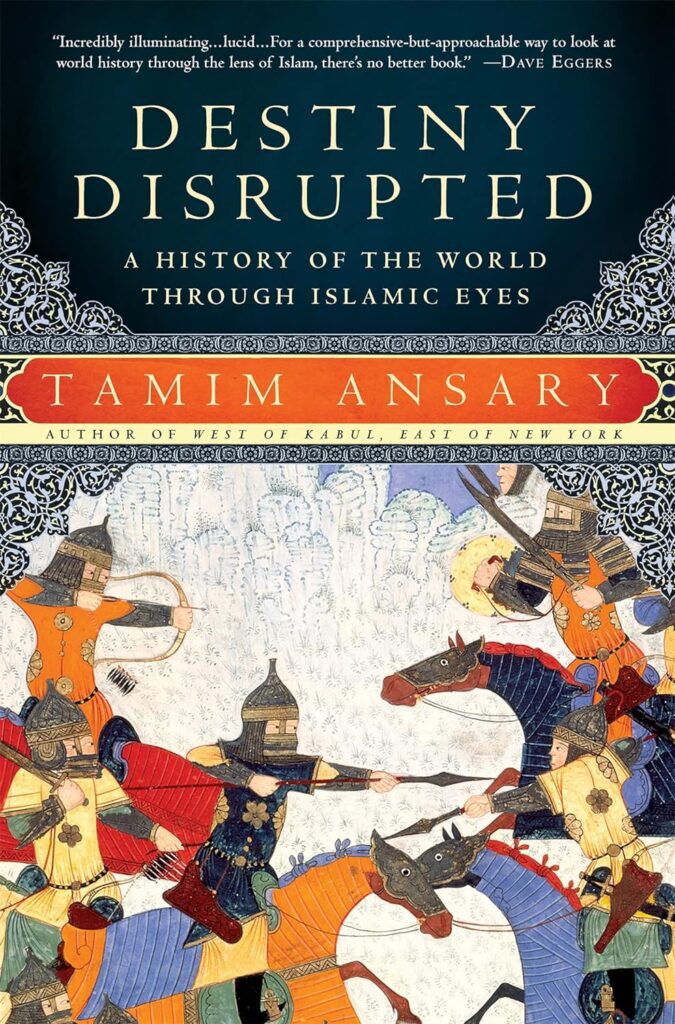

I’ve read a lot of books about Islamic history. I’ve also read several versions of the Qur’an with commentary. These tomes tend to be dry and scholarly. This is fine, but I prefer cordial narratives and a sprinkle of humor when reading a book about history for my pleasure. Tamim Ansary’s Destiny Disrupted is ideal in this regard.
Despite its respectable 400+ pages, I blazed through this book. It was so damned interesting, and it goes down easy. The writing is smooth, conversational, and personal. I appreciate that Ansary is an Afghan and identifies as a secular Muslim. He’s offering this narrative from the unique perspective of someone who grew up immersed in Afghan-Muslim culture and now lives in the West, with all its silos and post-enlightenment trappings.
Not only does it paint a complete picture of the political, religious, and social evolution of the Islamic world for the past 1400 years, but it also places this saga next to the changes happening in Western societies, offering a fascinating, comprehensive – sometimes infuriating – 20/20 retrospective of what has occurred across the globe leading up to, and after the advent of, “modernity.”
Rich with details left out of most Western history textbooks and current political commentary, Destiny Disrupted provides us with a series of ‘ah ha!’ moments. Even those of us familiar with Muslim societies and their histories may have significant gaps in our understanding, and this book fills in the blank spaces, explaining not only the interactions between Islam and the West but also among Muslims and their respective sects and cultures.
I’ve spent decades educating people about Islam and Muslims, engaged in interfaith dialogue and political activism. The level of ignorance, particularly in America, about the world’s second-largest religion is breathtaking. It’s also an open door for groups with less-than-savory political agendas to manipulate through fear and anger. This is a book I wish I’d had right after 9/11 when I was visiting churches regularly, responding to questions like, “Why does Islam oppress women?” and “Why do Muslims hate dogs?”
Much of what we see playing out on the world stage today is a direct result of the impacts of colonialism, the 20th-century nation-state project, and the Western world’s uninformed rejection of Islamic culture as being ‘anti-western’ and a threat to the values Westerners hold dear. In some ways, there are some profound conflicts of interest between the two – I would never suggest otherwise. That said, it would benefit us all to determine for ourselves whether we honestly disagree with the spirit of this great religion or whether we’re simply comfortable in our highly propagandized version of it.

